Leader Transitions
Ensuring newly appointed leaders transition well
Research shows that leader transitions are highly stressful. Approximately half of transitioning leaders under-perform and fall short of their full effectiveness.
The Leader Transition Process helps ensure newly appointed organizational leaders are prepared for the stress related to transitions, experience fruitful leadership transitions and function effectively in their new leadership roles.

Step 1

Step 2

Step 3
Awareness
Often only when a new leader is appointed, he/she starts to become painfully aware of unexpected changes and challenges that will be faced in the transition. There are a number of elements that affect a transition.
- Being prepared to deal with transition stress – identifying the stressful elements and addressing the issues
- Making the required mindset changes – with new responsibilities come necessary shifts in approach and mindset – this can often be the most surprising change
- Learning new skills and competencies – most transitions require a different set of skills than those developed before
- Understanding the impact on key stakeholders – people from both the old team and the new team will have different reactions to the change in leadership
Many of these elements can’t be controlled, but being prepared, understanding, evaluating, and prioritizing the issues that can be managed or minimized is essential.
The Leader Transition Worksheet is the key tool we use to help a new leader become aware of elements that may affect a fruitful transition. The new leader (with the assistance of a transitions coach) completes this worksheet and assesses the potential impact of each transition element, then proactively plans to deal with each one. The Leader Transition Turns Overview (listing major mindset shifts and new skills needed at each major leadership ‘turn’) may be helpful for understanding the changes needed for role transitions.
Adjustment
Working through the Leader Transition Worksheet, the newly appointed leader will identify and evaluate the key elements that may affect the transition. The role of the coach is to work with the new leader to prioritize areas for development.
In this adjustment step, the new leader will create a Leader Transition Development Plan (a sample template is provided). The coach can help create a development plan to meet those needs. A key role of the coach is helping the new leader choose SMART goals for the plan.
We encourage new leaders to participate in a good coaching/mentoring relationship to help ensure effective growth and development during a transition. Although there will inevitably be much pressure to achieve in the early days of a transition, the most fruitful leaders take prayer-filled time to adjust, get to know the team and the role, and make space for personal growth and development. We offer a Leader Transition Coaches Guide for the coach/mentor.
Assessment
Even with a development plan with SMART goals, the pressures on a new leader often change the plans and the realizations that occur in the first few weeks may also re-shape priorities. It may be that anticipating the areas of stress was effective in itself. Or other areas of challenge may emerge as time in the new role progresses. These areas can be added to (or swapped for others in) the Leader Transition Development Plan as opportunities for growth are identified. During the first 3-6 months of transition, progress on the leader’s development plan should be evaluated and the coach or mentor can help the leader make the necessary adjustments.
Although assessment should be a regular feature of the transition period, it’s can be helpful to formally assess progress on the development plan at the end of an agreed transition period. Assessments could include self-assessment by the new leader as well as an assessments by the transitions coach and/or supervisor. It can be helpful for the transitions coach to submit a final report on progress made and suggestions for further development. If necessary, an additional development plan can be made for a next few months.
Using the Transition Tools
By clicking the links below, you will be able to download the key tools you will need for the Leader Transition Process. For further help in making the most of these tools, have a look at the explanations and other resources in the resources for facilitators.
The resources particularly focus on implementation within an organization like Campus Crusade for Christ, so some adaptation may be required in order to ‘fit’ with organizational cultures and structures outside of CCCI.
We’d love your feedback, so do let us know of other related resources that would be helpful to you. Contact: info@LDHR.org
主なツール:
Leadership Transition Process Overview
Leadership Transition Turns Overview
Leader Transition Development Plan
Leader Transition Coaches Guide
Resources for Facilitators
Facilitators User Guide – a complete overview of the selection and transition processes
Leader Transitions Overview 1ページのまとめ
Awareness
Often only when a new leader is appointed, he/she starts to become painfully aware of unexpected changes and challenges that will be faced in the transition. There are a number of elements that affect a transition.- Being prepared to deal with transition stress – identifying the stressful elements and addressing the issues
- Making the required mindset changes – with new responsibilities come necessary shifts in approach and mindset – this can often be the most surprising change
- Learning new skills and competencies – most transitions require a different set of skills than those developed before
- Understanding the impact on key stakeholders – people from both the old team and the new team will have different reactions to the change in leadership
Adjustment
Working through the Leader Transition Worksheet, the newly appointed leader will identify and evaluate the key elements that may affect the transition. The role of the coach is to work with the new leader to prioritize areas for development.
In this adjustment step, the new leader will create a Leader Transition Development Plan (a sample template is provided). The coach can help create a development plan to meet those needs. A key role of the coach is helping the new leader choose SMART goals for the plan.
We encourage new leaders to participate in a good coaching/mentoring relationship to help ensure effective growth and development during a transition. Although there will inevitably be much pressure to achieve in the early days of a transition, the most fruitful leaders take prayer-filled time to adjust, get to know the team and the role, and make space for personal growth and development. We offer a Leader Transition Coaches Guide for the coach/mentor.
Assessment
Even with a development plan with SMART goals, the pressures on a new leader often change the plans and the realizations that occur in the first few weeks may also re-shape priorities. It may be that anticipating the areas of stress was effective in itself. Or other areas of challenge may emerge as time in the new role progresses. These areas can be added to (or swapped for others in) the Leader Transition Development Plan as opportunities for growth are identified. During the first 3-6 months of transition, progress on the leader’s development plan should be evaluated and the coach or mentor can help the leader make the necessary adjustments.
Although assessment should be a regular feature of the transition period, it’s can be helpful to formally assess progress on the development plan at the end of an agreed transition period. Assessments could include self-assessment by the new leader as well as an assessments by the transitions coach and/or supervisor. It can be helpful for the transitions coach to submit a final report on progress made and suggestions for further development. If necessary, an additional development plan can be made for a next few months.
Using the Transition Tools
By clicking the links below, you will be able to download the key tools you will need for the Leader Transition Process. For further help in making the most of these tools, have a look at the explanations and other resources in the resources for facilitators.
The resources particularly focus on implementation within an organization like Campus Crusade for Christ, so some adaptation may be required in order to ‘fit’ with organizational cultures and structures outside of CCCI.
We’d love your feedback, so do let us know of other related resources that would be helpful to you. Contact: info@LeaderTransitions.org
主なツール:
Leadership Transition Process Overview
Leadership Transition Turns Overview
Leader Transition Development Plan
Leader Transition Coaches Guide
Resources for Facilitators
Facilitators User Guide – a complete overview of the selection and transition processes
Leader Transitions Overview 1ページのまとめ
関連資料
Not sure where to go from here? Take a look at some of the other Processes resources that are available to you.

Leadership Selection Process
Leadership Selection Selecting the right leaders for the mission The need for high-caliber leadership is urgent. How can we make sure we select the right

Conflict, Grievance & Discipline
Conflict, Grievance and Discipline As part of our “Your First 100 days in LDHR” course, this learning module leads you through the general principles of
Featured Tools
Staff Standards
This "Your First 100 Days in LDHR" session articulates what it takes to be a staff member with CCCI
Mindset and Skill Shifts for New Levels of Leadership
A tool to help develop new local and national level leaders for Beyond 2020
The Purpose and Practice of Policy
This "Your First 100 Days in LDHR" session explains the reasons we have policies and how to write them well

